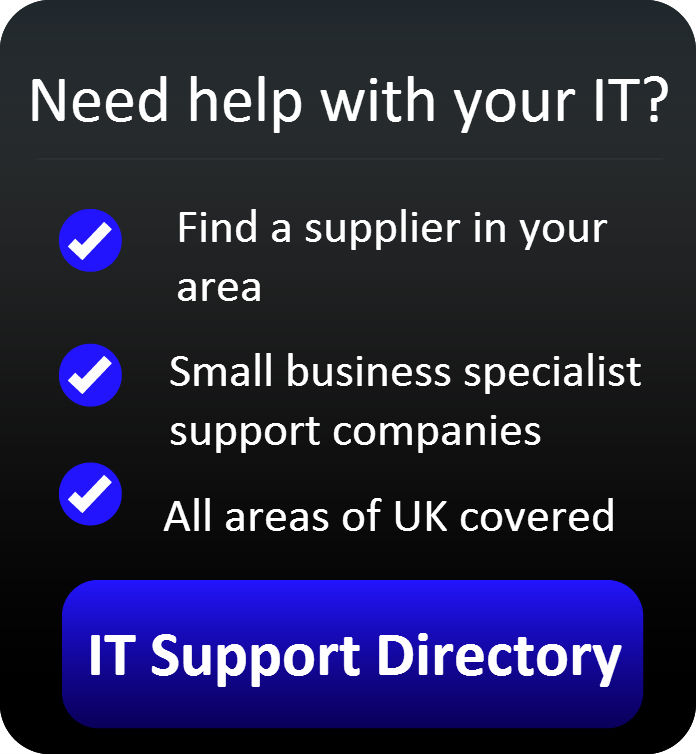Cloud computing: a new horizon for small firms
 Cloud computing is proving increasingly popular, but many small firms remain sceptical about the benefits. Despite the flexibility it offers, businesses are concerned about costs and data security — and others simply don’t understand what it’s all about. We find out whether it’s time for small firms to move to the cloud
Cloud computing is proving increasingly popular, but many small firms remain sceptical about the benefits. Despite the flexibility it offers, businesses are concerned about costs and data security — and others simply don’t understand what it’s all about. We find out whether it’s time for small firms to move to the cloud
Getting to grips with the cloud
Cloud computing enables you to use the internet for tasks you would otherwise do with your own computer. The applications and data are stored on servers that you access online ― 'in the cloud'.
Common uses for cloud computing include:
- Replacing your server. Cloud computing can perform all the tasks of a network server, with fewer management overheads such as performing software updates. However, this leaves you completely reliant on your cloud supplier, so you must trust them absolutely.
- Running CRM or accounting software. Instead of installing software on your computer, you just login to a website. You can use it from anywhere ― as long as the service is reliable.
- Handling data backups. You can back up data across the internet, so you don’t have to remember to run backups manually. You still need to test them though, to make sure the backup service is working properly.
 Why move to cloud computing?
Why move to cloud computing?
All you need to get started with cloud computing is am internet connection and a credit card. “The cloud enables businesses to try applications almost instantly,” explains Mike Fleming, founder of Cloudfortyseven, a company that provides cloud computing services. “It’s always there, like a utility service.”
Most cloud services charge a monthly fee. Although cheap at first glance, these charges do add up over time.
“Cloud computing may offer a small cost saving, but it’s not all about cost,” confirms Craig Sharp, MD at Abussi, a Birmingham-based IT support business which helps clients decide whether the cloud is right for them. “It’s about flexibility and reliability, with cost coming in third.”
Cloud computing is flexible in two main ways:
- It’s scalable. If you need to expand or contract your IT provision, you just pay a bit more or less each month. There are none of the normal hassles involved in buying new hardware or software.
- You can use it anywhere. Because cloud services are accessed on the internet, you can log in to them from anywhere. Your staff can access your systems and data without being on your premises.
Cloud computing can also be very reliable, because it shifts the IT management burden to an external supplier, who’s a specialist in that service. In short, if your cloud service goes wrong, fixing it is someone else’s problem. And they should have the skills to fix it fast.
Cloud computing credentials
If you’re thinking of adopting cloud computing, do your homework. “Look at your supplier’s credentials,” urges Fleming. “The two global certifications to look for are SAS 70 Type II and ISO 27001.” Suppliers with these accreditations should provide a reliable and secure service.
Check the track record of any potential cloud supplier carefully. “Look for long established people,” confirms Sharp. “Where are their servers? What sort of service level agreement do they have? You have to do due diligence.”
The weak point in many cloud set-ups is the all-important internet connection. “You need to think about resilience,” explains Fleming. “How will you cope if your internet connection fails?”
Andy Trish, CEO of NCI Technologies, a Cornwall IT support firm, agrees. “If you’ve got your own server on the premises, your data is still there,” he says. “You can work, even with your internet down. If you’re fully cloud based, you can’t do anything.”
It may be that your employees can work from elsewhere — perhaps at home, or a local Wi-Fi hotspot. But that’s not always simple or convenient.
 Find your cloud computing balance
Find your cloud computing balance
Small-business owner Richard Heathcote is a voiceover artist who uses cloud computing for email, backups and as a convenient way to move large files without having to struggle with email attachments.
“I can transfer files just by dragging and dropping using Dropbox. The client gets them straight away,” he confirms. “Everything’s stored in the cloud, so I can refer back to it, whenever I need it.
“I find the cloud very useful,” he continues. “Most of the stuff I use regularly is contained within it."
The cloud can be a daunting prospect, but as Heathcote’s experiences demonstrate, a good way to dip a toe in is to see if there are any IT problems you can solve with cloud computing. “If you’ve got a problem with your existing services, start there,” reckons Abussi’s Sharp.
After all, as he concludes: “You don’t have to do everything in the cloud. You can just invest in the things that work for you.”
- Are you ready for cloud computing?
- How do businesses use cloud computing?
- Q&A: Cloud computing security




